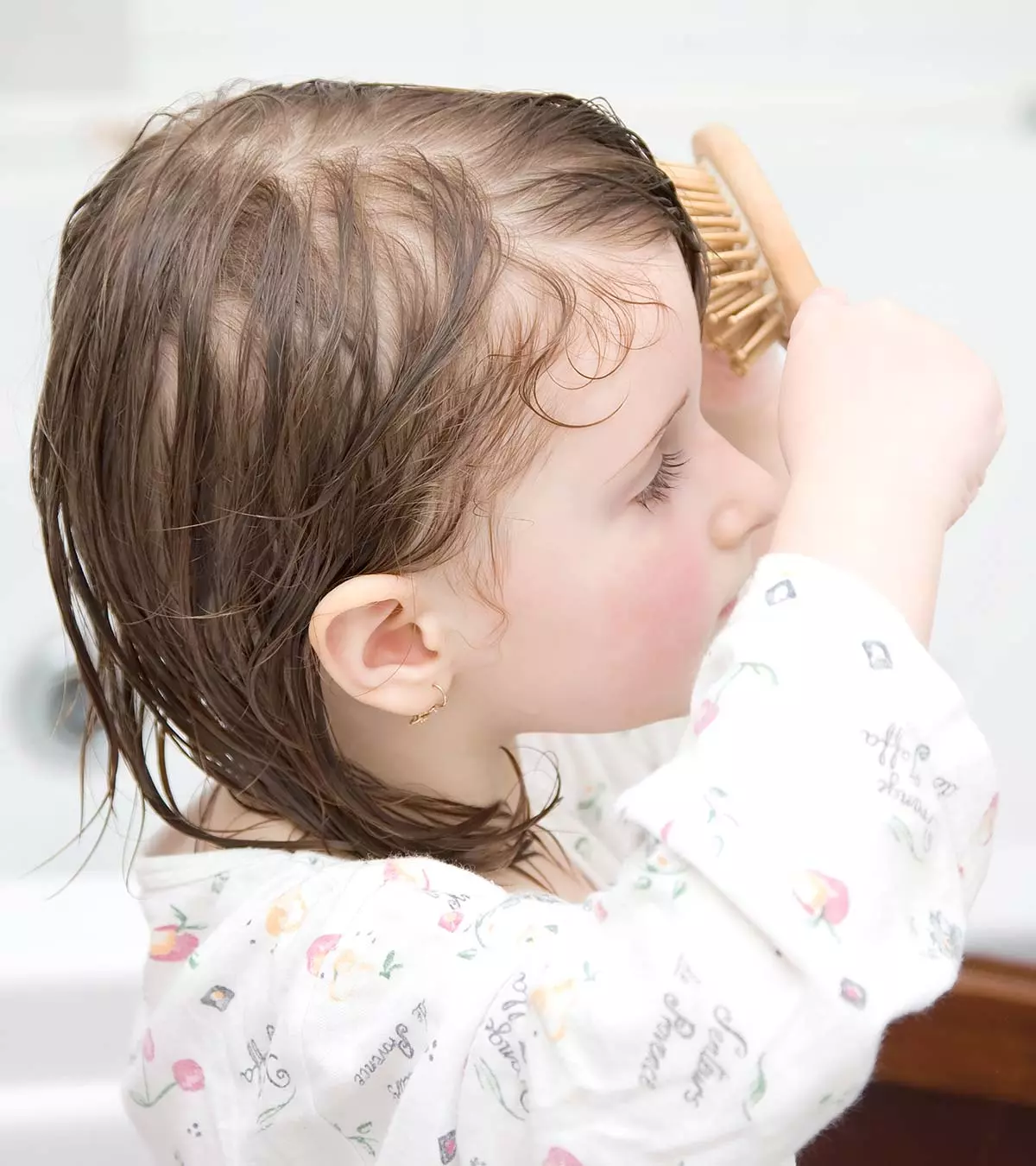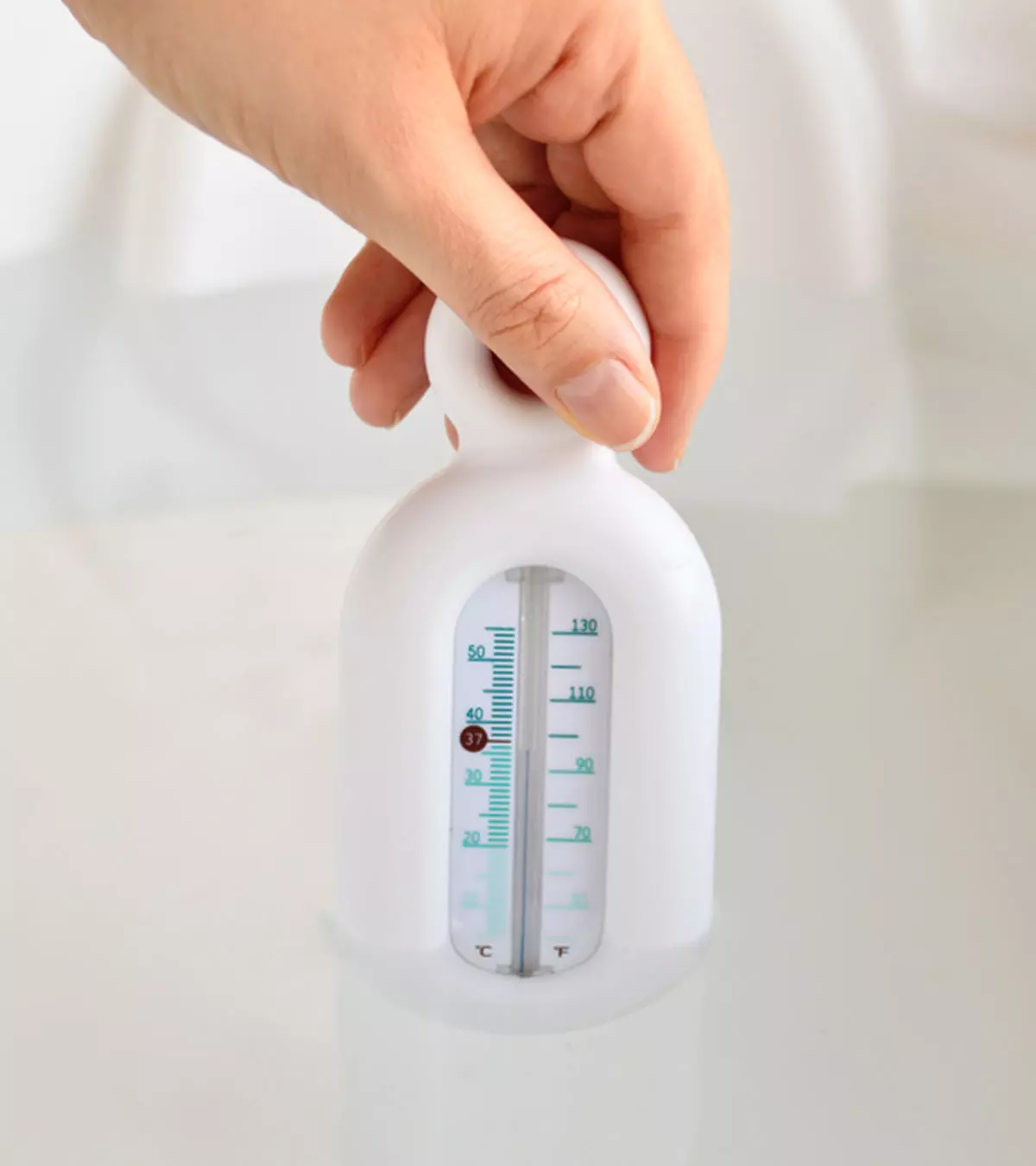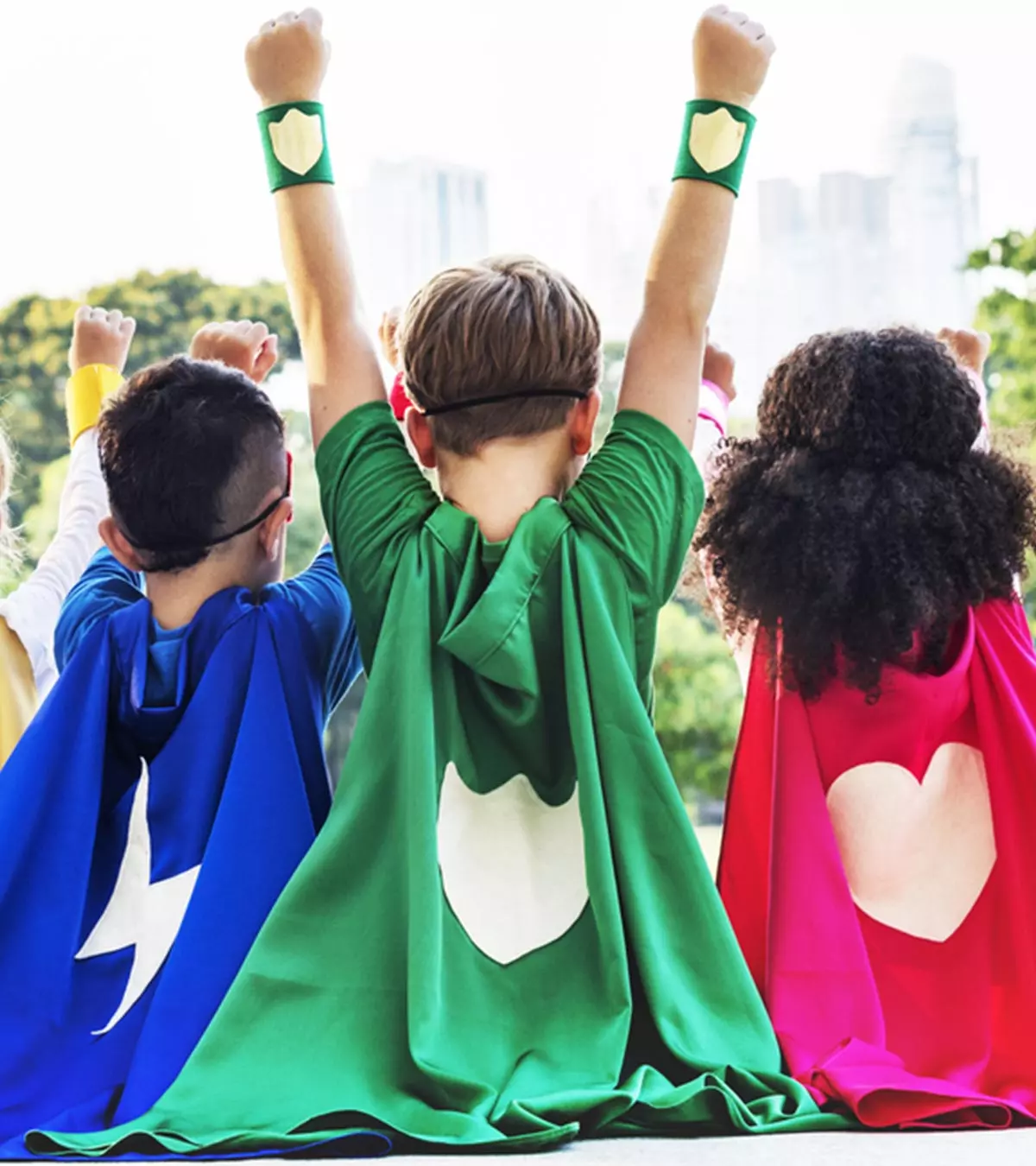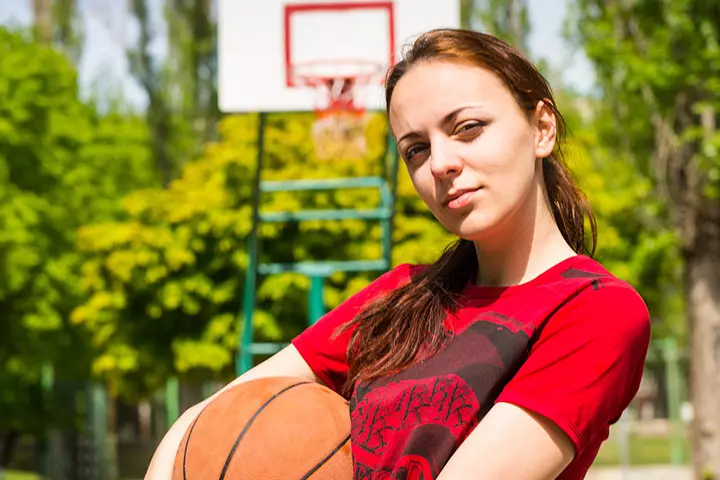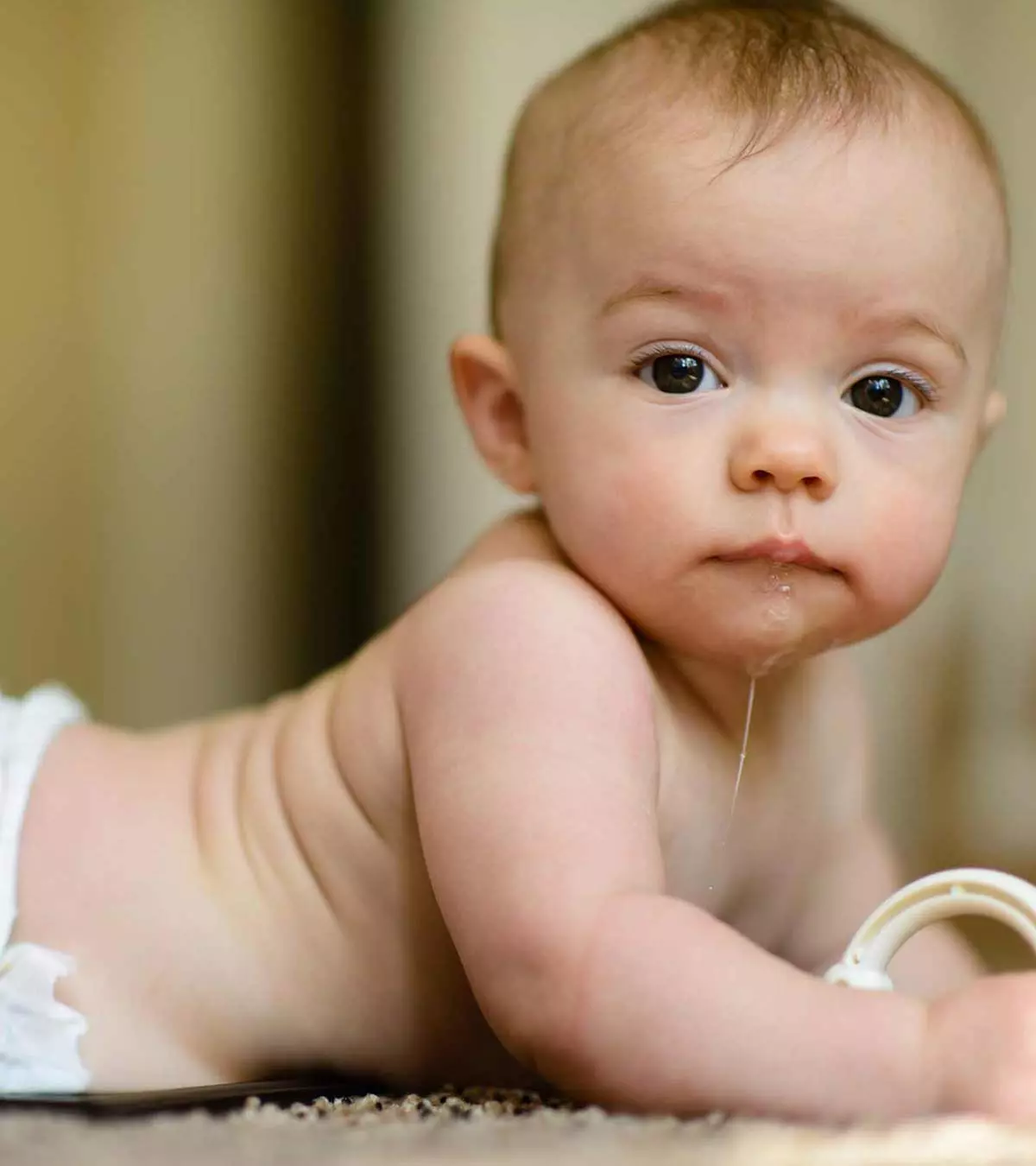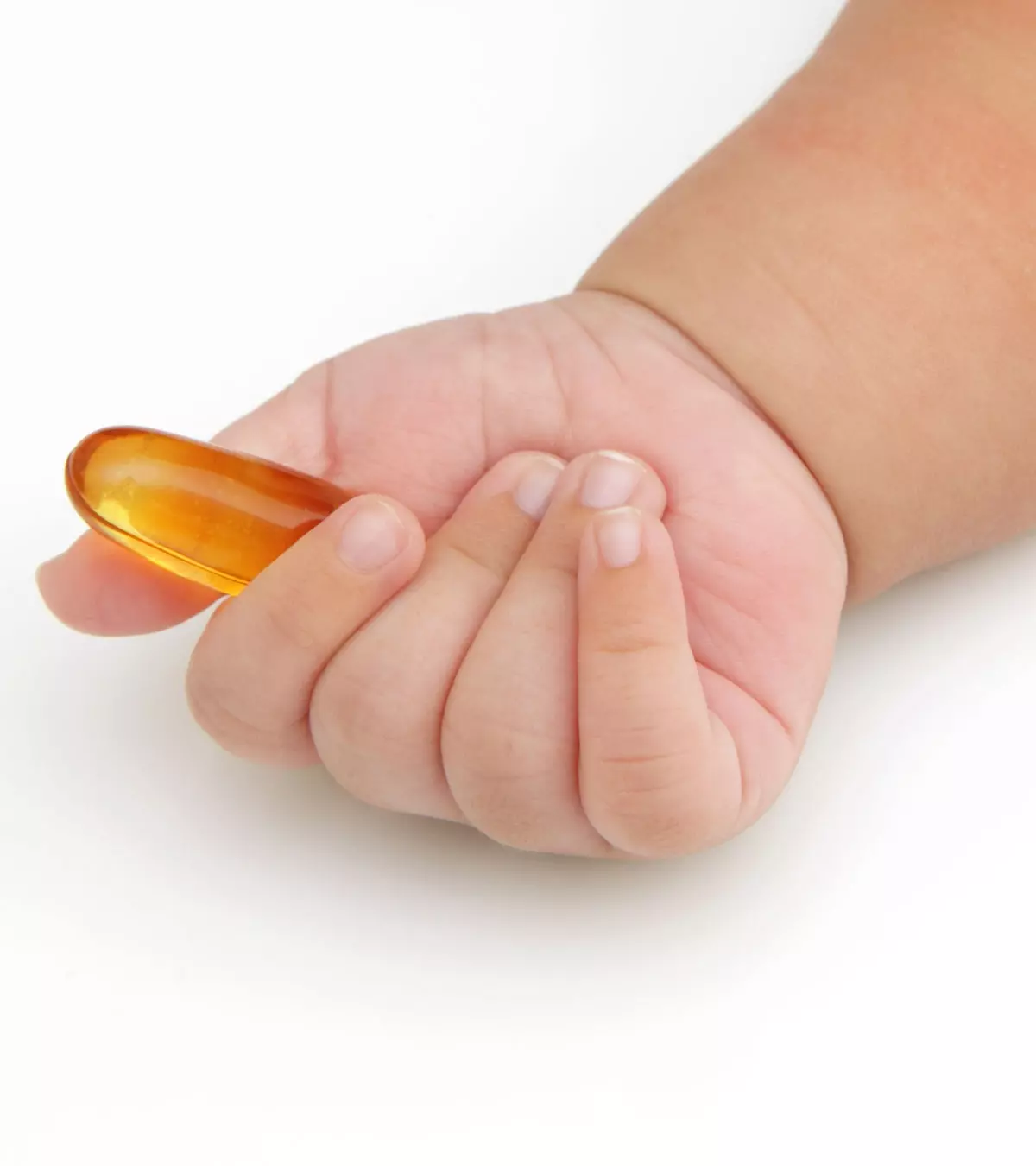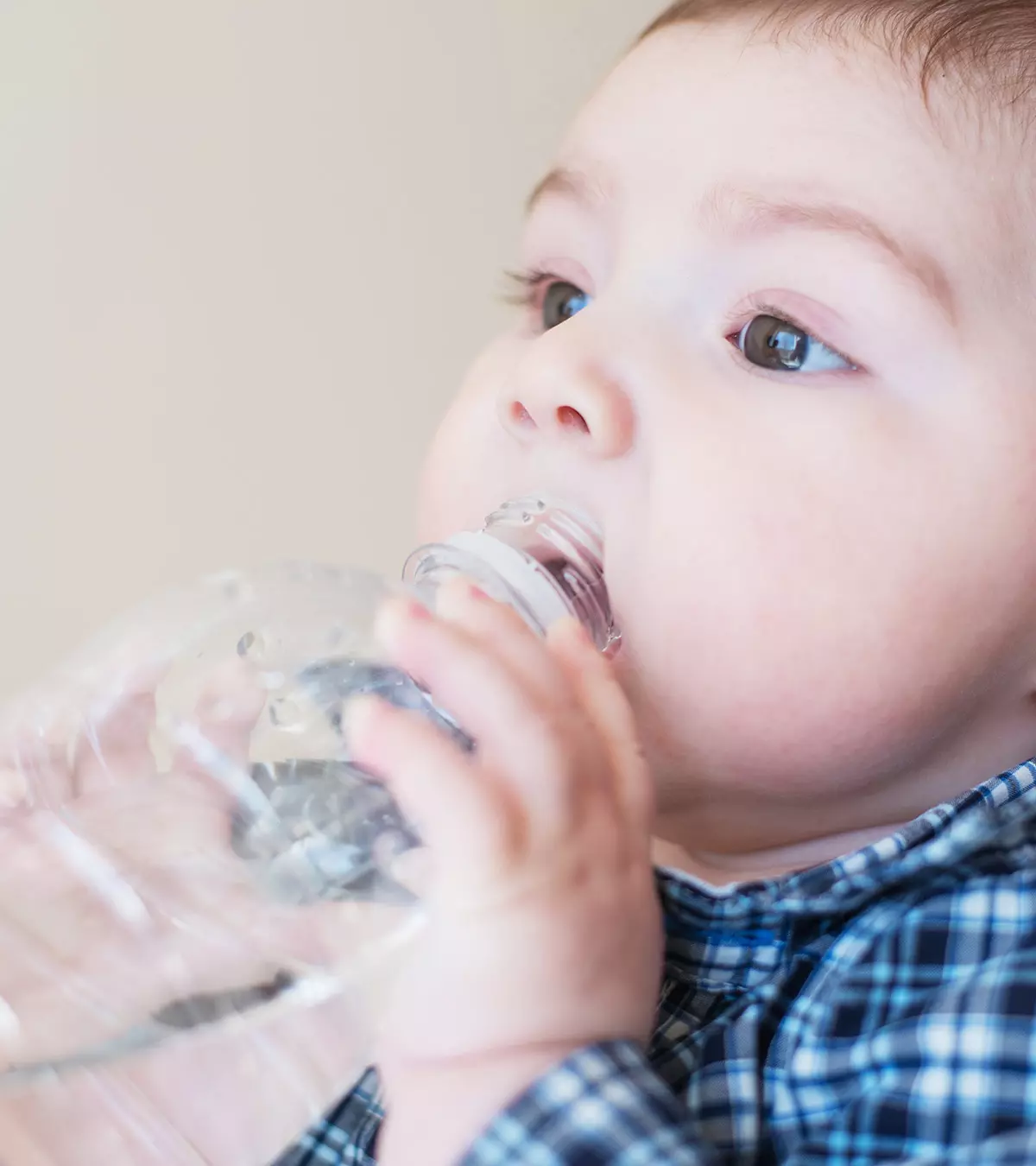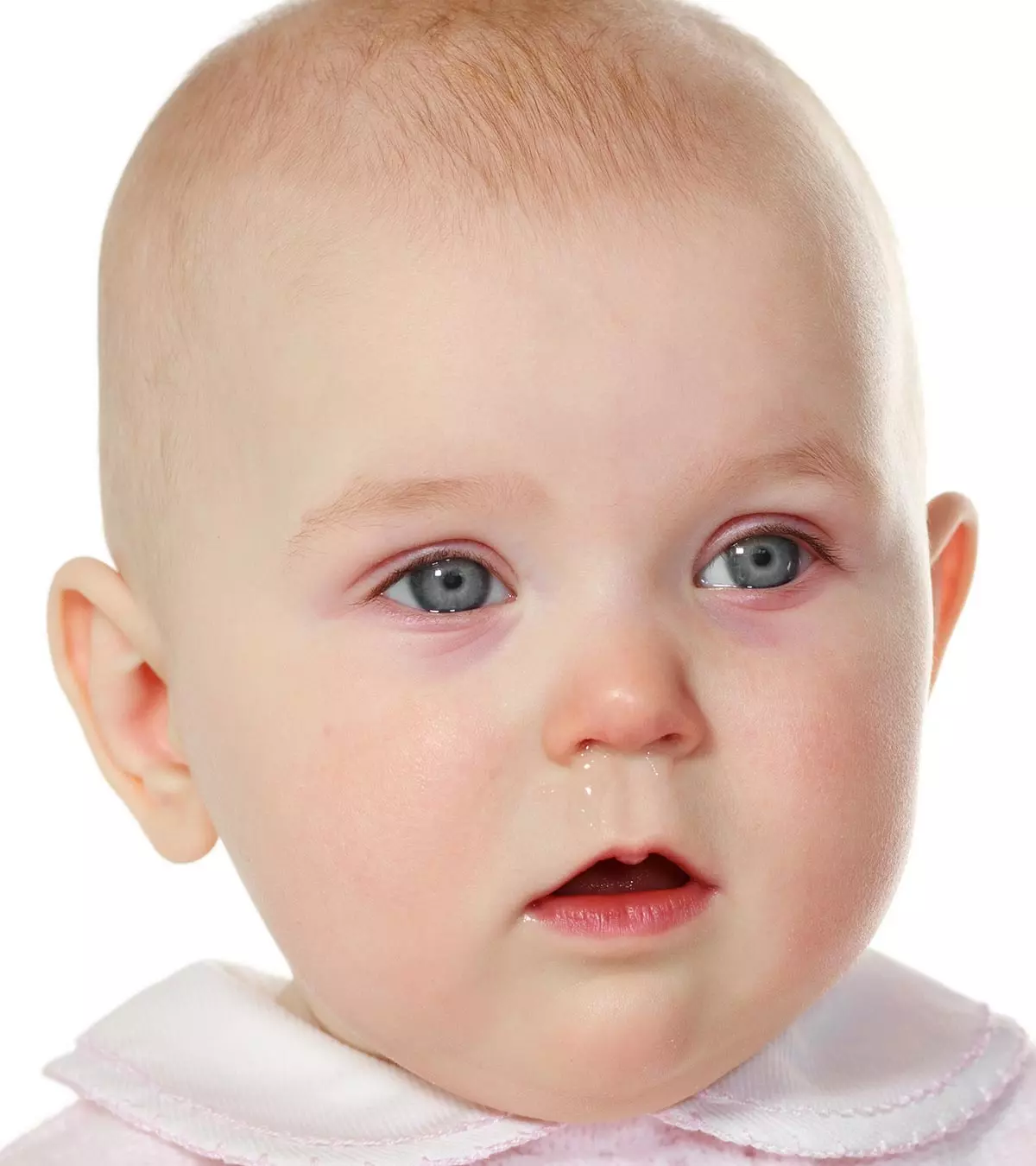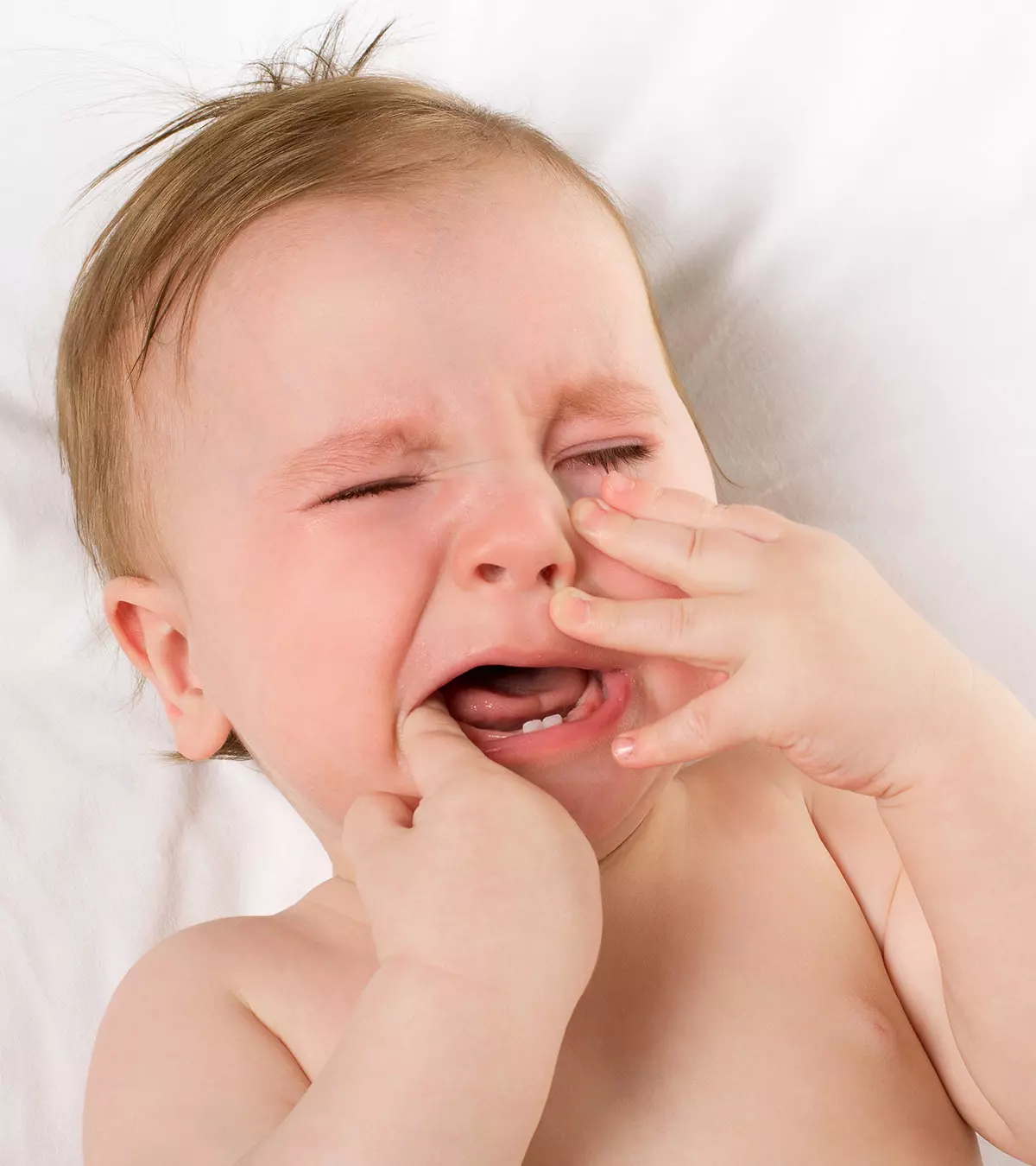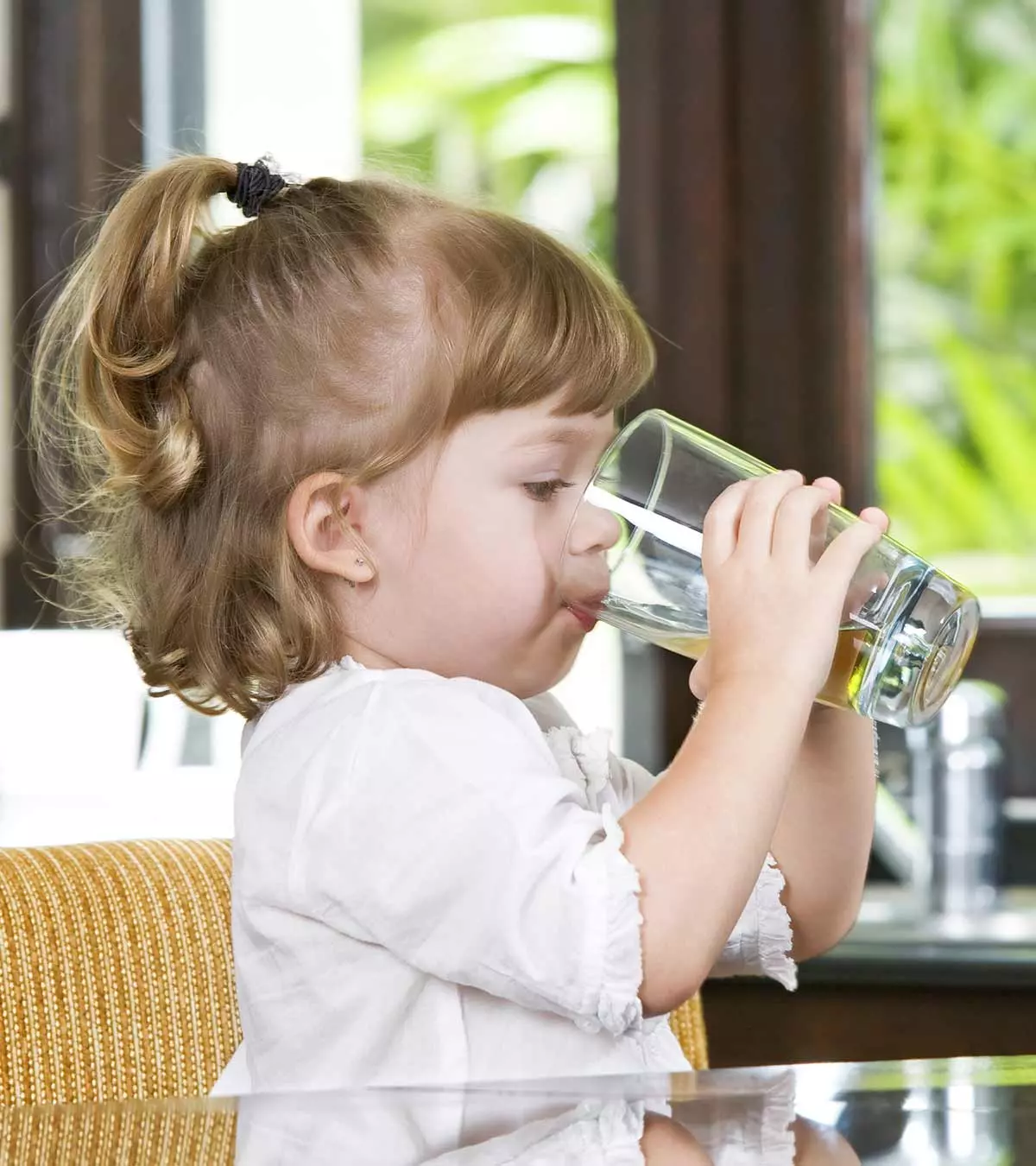
Image: ShutterStock
Adults are advised to drink at least eight glasses of water a day. But is your toddler drinking water in the right quantity? This post provides the answer to this question.
Water helps carry the minerals and nutrients to various parts of the body and also aids in washing out toxic substances. But the amount of water that we need varies from what our babies need. This is because toddlers usually have a liquid diet, and their hydration comes from various sources, including milk and water.
Key Pointers
- The USDA recommends that children aged one to three consume five and a half cups of water and other beverages daily.
- The AAP recommends that toddlers consume low-fat, low-sugar dairy products and limit their intake of juice and flavored milk to 4-6 ounces per day.
- Toddlers may require varying amounts of water depending on the weather and their level of physical activity.
- Parents can promote their toddler’s water intake by setting a positive example, making water easily accessible, and serving meals that are high in water content.
- Parents should avoid offering sugary and carbonated beverages to toddlers, as these can contribute to tooth decay and obesity.
How Much Water Should A Toddler Drink A Day?
Although there’s not much clarity of the ideal quantity of water, pediatricians all over the world agree that the age between 1 to 3 is the perfect time to inculcate among children the habit of drinking water.
The USDA recommends that children in the age group of 1 to 3 should drink around five and a half cups of water every day. But this fluid intake can come from a mix of beverages like milk and juice, besides the water from foods.
The American Association of Pediatricians (AAP) advises parents to limit juice/flavored milk to just 4-6 ounces a day. They recommend 100% juice rather than soft drinks or soda. As for the flavored milk, AAP urges parents to stick to low fat, low sugar milk (1).
Besides water, milk also offers several health benefits, but milk intake should be within the safety limit of 16 to 24 ounces per day. Water requirements also vary depending on the climate or the physical activities of the child. For instance, when the weather is hot outside, children run a risk of dehydration. They do not sweat like adults, and hence their body takes time to cool. Such children may need extra fluids to prevent exhaustion and dehydration.
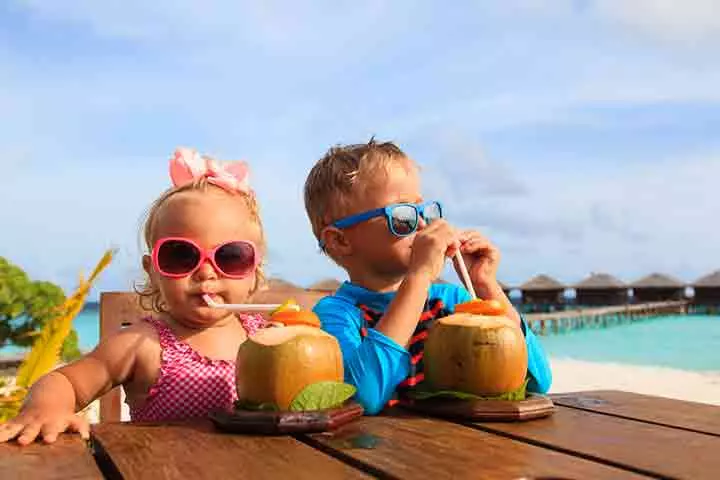
Similarly, when it is too cold, the dry weather outside may cause children to sweat and become dehydrated. Children engaged in a physical activity should stay hydrated. Make sure that you offer a minimum of 4 ounces of water every 15 minutes or whenever the child is thirsty. If your kid has cold, he/she should also be encouraged to drink plenty of water to keep membranes moist thereby preventing further infection. Diarrhea and vomiting also cause dehydration. Increase liquid intake if the child is unwell.
Types Of Drinks You Can Give To Your Toddler
As earlier said, plain water need not be the only source of water, although it is the best choice for your child. Toddlers, accustomed to drinking juices and soft drinks often become poor water-drinkers as adults.
The proportion of water obtained from food is directly proportional to the fruits and vegetables included our diet, says an article published by the US National Institute of Health Journal (2).
Thus, fruits like cantaloupe, watermelon and strawberries contain almost 90-99% water. Similarly, vegetables like lettuce, cabbage, and spinach contain an equal amount of water. Water content in biscuits and cakes ranges between 20-29%.
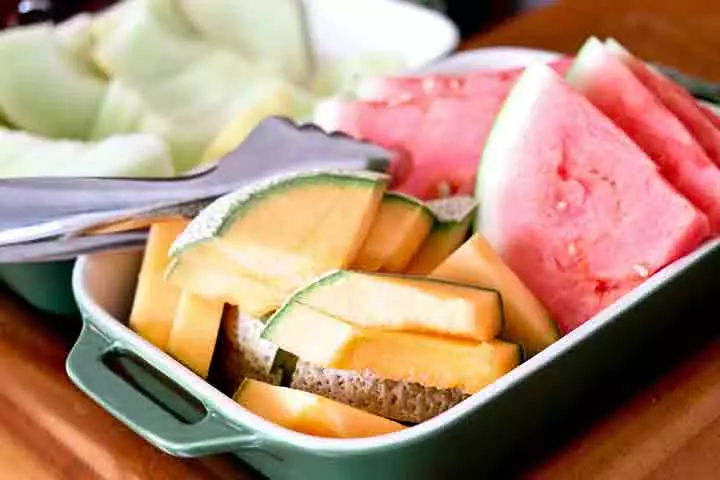
Although a single glass of juice contains about five (recommended) daily portions of fruits and vegetables, it lacks fiber (3). A diet low on fiber is a major reason for constipation among children. Water sourced from food should be around one and half cups, says the USDA.
If your child isn’t enthusiastic about drinking milk, yogurt is a healthy alternative. Avoid fizzy drinks and sugary juices as they damage teeth and cause obesity.
Signs Of Dehydration
It’s important to identify dehydration in toddlers to safeguard their health. Key signs include:
- A dry mouth
- Increased irritability or fussiness
- Less frequent urination or fewer wet diapers
- Wrinkled skin
- Discolored feet and hands
Monitoring these symptoms closely can help parents address dehydration early and keep their children well-hydrated (4).
Encouraging Your Toddler To Drink Water
When it comes to encouraging children to drink water, the golden rule of parenting applies – Practice What You Preach! Children find it easy to accept things when you lead by example; hence make sure that you say yes to plain water than sugary or fizzy drinks.
1. Introduce the Fun Element:
Serve water in colorful bottles and glasses. Sippy cups or straw cups with your child’s favorite cartoon characters are also a good idea. Children, especially toddlers, love to play with pots and pans. Use this as an opportunity and fill spoons and spatulas with a little water. But you’ll have to be careful about the utensils they use (bowls, spoons and spatulas are safe, but pots and pans aren’t).
2. Make Water Readily Available:
Keep water bottles around the house, especially in the bedroom and the living room. Toddlers are a busy lot and tend to ignore thirst. Placing a bottle of water close to the child signals his mind to reach for it when thirsty.
Feed Them Water-rich Food: Include fruits like watermelon and strawberries in a child’s diet. Soups offer nourishment and a great idea to fill kids with fluids.
Narrating her endeavor to increase her toddler’s water intake, Marla Aycho, a mother and vlogger, remarks, “The first thing is to make water available. I have different kinds of sippy cups and cups. I leave a sippy cup wherever my son goes. So, if he is playing in the living room, I would leave one on the coffee table because he would see it and reach it when needed. If he is playing with his blocks, I’d put it beside him. So I always like to have it around him and follow him around the house and make sure he has that sippy cup with him (i).”

3. Offer Healthy Alternatives:
Buttermilk or chaas is a great coolant and aids in digestion. It also helps combat dehydration and is a great source of calcium (without the fat found in milk and yogurt). Jal Jeera is another effective thirst quencher. It not only helps the body to cool, but also combats acidity. As children, we were regularly made to drink neeragaram. Water was added to steamed parboiled rice to allow overnight fermentation. This water was consumed in the morning with a few curry leaves added for extra flavor. Neeragaram is a good probiotic and helps improve the gut flora.
 Quick tip
Quick tipDo’s and Don’ts When Getting Kids Into Drinking Water
Sippy Cup Alert: Sippy cups help children make the transition from bottles to cups. But overusing these cups can lead to dental problems. Avoid service juice or sugary beverages in these cups, especially before bedtime. Serve only water in sippy/straw cups.
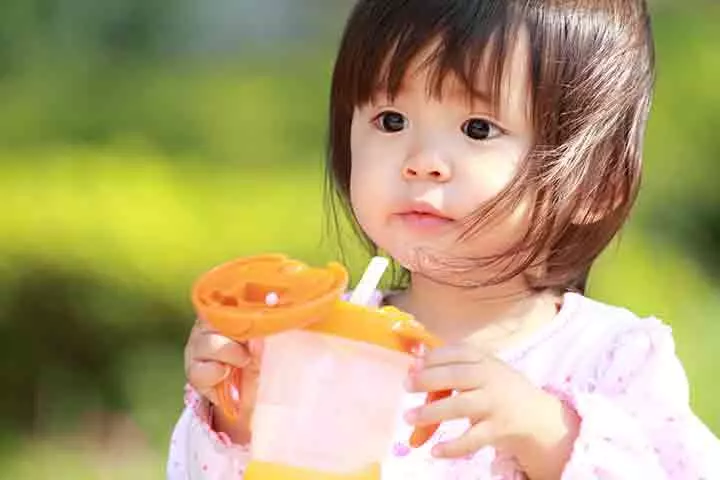
Avoid Tea, Coffee and Liquids Containing Caffeine: Tea, coffee and liquids containing caffeine are stimulants and hence not suitable for children. These beverages cause temporary alertness, but may later make them drowsy and dull. Similarly, energy drinks contain high amounts of sugar and are hence not suitable for children.
 Point to consider
Point to consider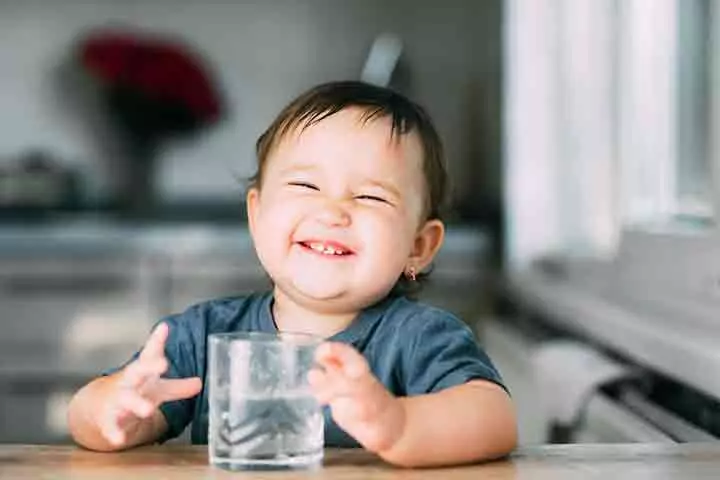
A toddler drinking water at regular intervals will have stronger immunity than a dehydrated toddler. You should understand the adequate amount of water required by a toddler to maintain good health. Children may often make a fuss about drinking water, but force may be your only option left if you think they are dehydrated. Make your little ones aware of the benefits of following a strict water drinking schedule and see their health improve two folds.
Frequently Asked Questions
1. How much is too much water for a 2-year-old?
A two-year-old toddler should not drink more than two 8-oz cups of fluids daily (5).
2. Why is my toddler thirsty all the time?
Many toddlers drink a lot of water and, as a result, pee a lot. This is normal, and most of them outgrow it. However, if they are potty trained and begin to have peeing accidents, consider consulting your child’s doctor to rule out any underlying conditions (6).
3. How much water can cause a risk of water intoxication in my toddler?
Water intoxication in babies and toddlers is relatively uncommon. It happens when a child drinks more water than their body can excrete through the kidneys. As a result, hyponatremia sets in, diluting the blood’s salt content (7). You may consult a pediatrician to understand the right amount and method of drinking water for your toddler.
4. How can my toddler stop drinking excessive water at night?
If your toddler is excessively thirsty every night, this may mean they need to be well hydrated. You may give them enough water in the daytime to ensure they are not dehydrated. However, if they continue to remain thirsty at night, consult a doctor.
5. What are the signs of dehydration in a toddler?
Reduced urination, dark-colored urine, dry mouth, absence of tears while crying, irritability, sunken eyes, and drowsiness or dizziness could be signs of dehydration in toddlers. Early recognition and intervention are essential to prevent dehydration from worsening (8) (9) (4). If you observe these symptoms, seek prompt medical help to ensure the child receives adequate fluids. Also, it will help address any underlying issues contributing to dehydration.
Infographic: Ways To Encourage Your Toddler To Drink Water
Children aged one to three years require about four cups of beverages daily, including water or milk. However, the amount may vary depending on the child’s environmental conditions and activity levels. The infographic below discusses some simple ways to encourage your toddlers to drink more water to keep them well-hydrated throughout the day.

Illustration: Momjunction Design Team
Illustration: How Much Water Should A Toddler Drink & Tips To Encourage

Image: Stable Diffusion/MomJunction Design Team
Help your toddler stay hydrated with tips on how to make sure they’re getting enough water. Learn how to recognize signs of dehydration and how often to give them water.
Personal Experience: Source
MomJunction articles include first-hand experiences to provide you with better insights through real-life narratives. Here are the sources of personal accounts referenced in this article.
i. How to get your toddler to drink more water.https://www.youtube.com/watch?feature=shared&v=vb1c545DYMY
References
- Healthy active living for families
https://www.aap.org/en/patient-care/healthy-active-living-for-families/#none - Water , Hydration and Health.
https://www.ncbi.nlm.nih.gov/pmc/articles/PMC2908954/ - Water, drinks and your health
https://www.nhs.uk/Live-well/eat-well/food-guidelines-and-food-labels/water-drinks-nutrition/ - Signs of Dehydration in Infants & Children
https://www.healthychildren.org/English/health-issues/injuries-emergencies/Pages/dehydration.aspx - How much water should kids drinks?
https://choc.org/programs-services/urology/how-much-water-should-my-child-drink/ - Diabetes insipidus
https://bettersafethantumour.com/clinical/diabetes-insipidus/ - Min A Joo and Eun Young Kim; (2013); Hyponatremia caused by excessive intake of water as a form of child abuse.
https://e-apem.org/journal/view.php?doi=10.6065/apem.2013.18.2.95 - Dehydration In Kids: Early Warning Signs And Treatment
https://www.unicefusa.org/stories/dehydration-kids-early-warning-signs-and-treatment - Dehydration
https://kidshealth.org/en/parents/dehydration.html - 11 Ways to Get Your Kids to Drink More Water
https://www.childrenscolorado.org/conditions-and-advice/sports-articles/sports-nutrition/hydration-tips-for-preventing-heat-illness/ - Choose Water For Healthy Hydration
https://www.healthychildren.org/English/healthy-living/nutrition/Pages/Choose-Water-for-Healthy-Hydration.aspx
Community Experiences
Join the conversation and become a part of our nurturing community! Share your stories, experiences, and insights to connect with fellow parents.
Read full bio of Dr. Surabhi Sangwai
Read full bio of Jessica Albert
Read full bio of Dr. Ritika Shah
Read full bio of Vidya Tadapatri






